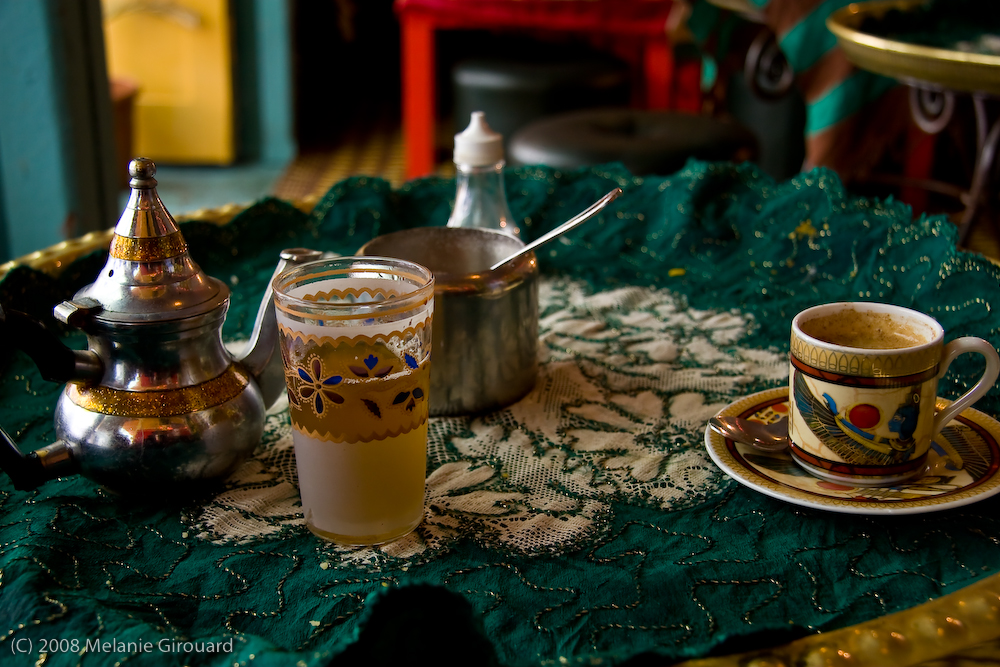Shuwadashilim - The Comprehensive Elixir (ʃu.''wa:.da.'ʃi.lim)
"Shu... shuwada..."Shuwadashilim is a primarily coffee-based drink that, for students of higher education in Andaen, is something of a rite of passage in itself, for a plurality of university students in the city deem the stuff essential for passing one's qualifying exams.
"Don't hurt yourself, now. Take it slow."
"...Shu-wa-da-shi-lim, is that it? Wow, sounds mysterious."
"It's not. It's a study aid, and knowing you, you'll need it to get through your comprehensives."- a conversation between a Fundamentals-level student and a Mentee at Andaen University of the Esoteric Arts and Lore, date unknown
The Comprehensive Elixir
The qualifying exams entail spending no more than three days providing written responses to some of the more nuanced, controversial, or convoluted questions in one's field. Writing a passable comprehensive exam is a demonstration that the examinee is not merely able to recite the works of other scholars but possesses the capacities for critical thought, the synthesization of opposing arguments, and the willingness to embrace uncertainty. These qualities are all deemed desirable in students bound for advanced studies. Considering that the answers to these questions are necessarily written by hand on papyrus, and students who have prepared adequately have already lost sleep for the sake of conducting archival research, it is understandable that students should resort to exceptional measures to pass their qualifying exams. One of these exceptional measures is Shuwadashilim. The "elixir," as some students refer to it, is typically served by cafes adjacent to Andaen's higher educational institutions--on request only. Neither signs, nor menus, nor baristas themselves will advertise the stuff. Nonetheless, the drink is embraced in the subcultures of a number of student bodies, so as summer begins to loom overhead, the owners of university-adjacent cafes can expect at least a few harried-looking students to inquire into the availability of the "elixir." The "elixir" in question is served in a medium-sized mug rather than the usual smaller coffee cup, the drink's volume being half that of a typical serving of beer. The drink consists of concentrated coffee, supplemented by an even greater concentration of some type of relatively high-caffeine tea. The theanine in the tea produces a sort of calm alertness that somewhat counteracts the coffee itself; one should stir the drink regularly in order for these elements to properly counterbalance each other. The remaining ingredients of Shuwadashilim vary from one cafe to the next but are usually kept secret anyway, as the other stimulants used in a preparation of Shuwadashilim would not usually make it through customs when imported into Andaen. Whatever stimulants are selected are comparatively slow-acting in nature, granting the drinker continued focus long after their natural fatigue--and caffeine crash--should force them to retire. Additionally, a generous helping of spearnmint or a similar herb provides a cool aftertaste that helps keep raggedly tired students awake. The stuff is usually served "black" so far as it can be considered a coffee drink at all, and it is just about as bitter as a geniune medicine. Still, this is hardly a consideration for those desperate enough to fork over a healthy sum of coin for an illicitly brewed "elixir" that they expect will carry them through the greatest challenge they will face in their academic careers.History
The exact origin of Shuwadashilim is a matter of urban legend--and yes, academics, too, deal in urban legends. It is generally accepted across all tellings of the legend of Shuwadashilim that it was the ultimate product of a student appealing to a professor of apothecarial studies--or in some versions, an urban-dwelling witch--for an elixir that would ensure the student's ability to at least complete their comprehensive exam within the traditional three-day time limit. The typical ingredients in the drink, especially the large helping of imported tea, suggest that the student had the financial means to pay their one-time apothecary a hefty sum to devise a unique "elixir" for their rather ordinary problem.
While individual accounts vary widely as to who invented the stuff, etymologically speaking, those who are familiar with the language of the sorcerous Shadrusun can readily identify the nominalized verb shuwada (from shuwadu, "to bring to completion") and ashilim ("remedy"). Regardless of the original phrasing, the two words were most likely mashed together over time by students who only partially parsed them out. The apparent etymology of this drink's name is also consistent with the advanced nature of the Shadrusun people's studies of botany, biology, and medicine, not to mention that despite the small number of Shadrusun living throughout the Continent, they are disproprtionately represented as faculty and archivists at none other than Andaen University of the Esoteric Arts and Lore.
Primary Related Location
Related Organizations


Comments